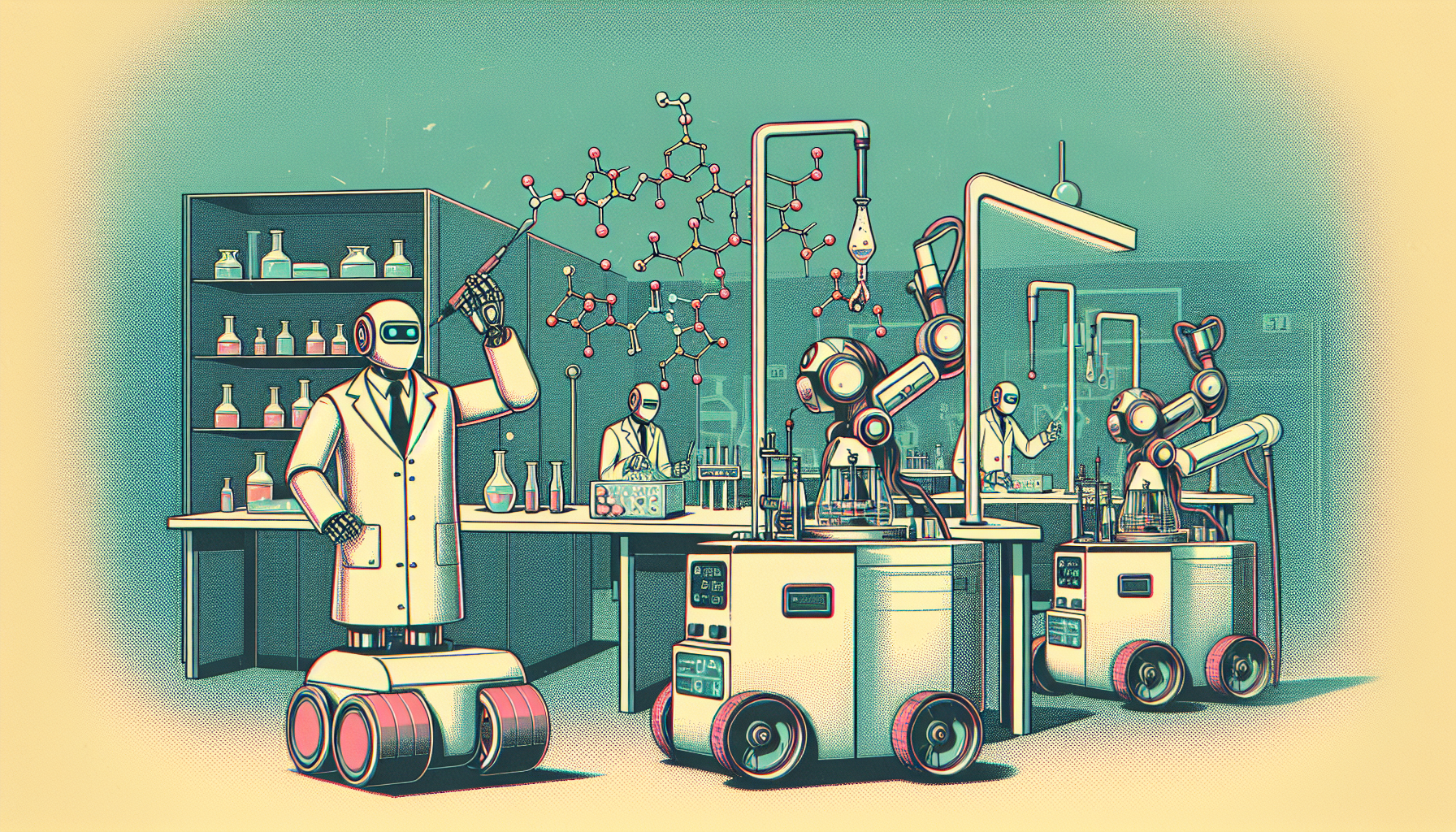In a remarkable leap forward for the chemistry world, researchers at the University of Liverpool have unveiled AI-driven mobile robots, setting new standards in the realm of chemical synthesis. This ground-breaking technology, celebrated in the journal Nature, reveals how these robots excel in conducting intricate chemical synthesis tasks with a proficiency and speed that matches, and in some cases surpasses, human researchers.
Design and Functionality
Guided by Professor Andrew Cooper from the Department of Chemistry and Materials Innovation Factory, the Liverpool team created 1.75-meter-tall robots that tackle significant challenges in exploratory chemistry. These include performing chemical reactions, examining the products, and making decisions from the data gathered. Empowered by cutting-edge AI logic, the robots swiftly process analytical datasets and make autonomous decisions, all in mere seconds.
Areas of Application
The AI-driven robots have been put to the test in three specific domains of chemical synthesis:
- Structural Diversification Chemistry: Essential in drug discovery, this area involves creating diverse chemical structures to identify potential drug candidates.
- Supramolecular Host-Guest Chemistry: This focuses on the interactions between molecules and their complex structural formations.
- Photochemical Synthesis: Utilizing chemical reactions triggered by light, this method is versatile for crafting complex molecules.
In each domain, the robots showed a remarkable capability of working cooperatively and making decisions akin to those of human researchers, yet at a much faster rate.
Speed and Efficiency
The ability of these robots to operate at incredible speed is truly astounding. Where human chemists might require hours to analyze datasets and plan the next steps, these AI-powered entities make decisions almost instantaneously. For instance, if a robot examines data at 3:00 AM, it can determine the next reaction steps by 3:01 AM, achieving a feat unattainable for human researchers.
Overcoming Challenges
Chemical synthesis research traditionally demands significant time and resources due to the complexity of both hands-on experiments and the decision-making process. Prior automation efforts in chemistry mainly addressed tasks like mixing solutions and conducting heating reactions. However, the AI logic in these robots advances this by swiftly processing multiple datasets and making informed decisions, tackling the variable outcomes inherent in exploratory chemistry.
Future Applications and Scalability
The Liverpool team envisions these robots aiding in discovering new chemical reactions, crucial for pharmaceutical drug development, and forging new materials for vital applications such as carbon dioxide capture. The potential scalability of this technology is vast, with the possibility of deploying numerous robot teams, making it adaptable for large industrial laboratories.
Limitations and Future Development
While the present AI allows the robots to make human-like decisions for specific tasks, they lack the unique contextual judgment of experienced researchers. This absence of spontaneous, groundbreaking insights, often dubbed the “Eureka!” moments, outlines a current limitation. However, the integration of large language models to deepen AI’s contextual grasp provides an exciting avenue for evolving this capability, linking the robots directly to essential scientific literature.
Funding and Background
This innovative research is a continuation of the Liverpool team’s earlier achievements, such as creating the world’s first “mobile robotic chemist” in 2020, which conducted nearly 700 catalysis experiments over eight days. This project has received support from the Leverhulme Trust, the European Research Council, and the Engineering and Physical Sciences Research Council.
In summation, the advent of AI-driven mobile robots in the domain of chemical synthesis represents a pivotal advancement in accelerating discoveries, cutting costs, and maximizing efficiency. As this technology evolves, it promises to be a transformative force across various fields of chemistry and beyond.

Leave a Reply